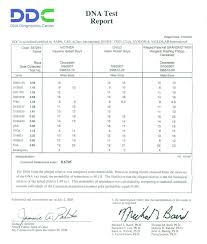
Parental DNA Test: Understanding the Importance and Process
Parental DNA testing, also known as paternity or maternity testing, is a scientific method used to determine biological relationships between parents and their children. This type of test is crucial in establishing legal parentage, resolving custody and support disputes, and providing clarity in familial relationships.
Importance of Parental DNA Test
Parental DNA testing holds significant importance in various aspects of family law and personal relationships. It can:
- Confirm biological parentage: DNA testing can conclusively establish whether an individual is the biological parent of a child.
- Resolve legal issues: In cases of child custody, support disputes, inheritance claims, or immigration matters, parental DNA testing can provide crucial evidence.
- Create emotional closure: For individuals seeking to confirm or establish familial relationships, DNA testing offers emotional closure and peace of mind.
The Process of Parental DNA Testing
The process of parental DNA testing typically involves the following steps:
- Sample Collection: Buccal swabs are commonly used to collect DNA samples from the inner cheek of the individuals involved in the test.
- Laboratory Analysis: The collected samples are sent to a certified laboratory for analysis. The lab compares specific genetic markers to determine genetic similarities between individuals.
- Results Interpretation: Once the analysis is complete, the lab provides a detailed report explaining the results and confirming or excluding parentage based on genetic data.
Conclusion
In conclusion, parental DNA testing plays a vital role in establishing biological relationships and resolving legal matters related to parentage. It offers a reliable method for confirming parental identity and can have far-reaching implications for families and individuals seeking clarity in their familial connections.
6 Essential Tips for Conducting a Parental DNA Test Responsibly
- Ensure the testing company is accredited and follows legal guidelines.
- Discuss the test with the other parent to gain their consent and cooperation.
- Explain the testing process to children in an age-appropriate manner.
- Consider the emotional impact on all family members before proceeding.
- Consult with a healthcare professional or genetic counselor for guidance.
- Understand the potential legal implications of the test results.
Ensure the testing company is accredited and follows legal guidelines.
To ensure the accuracy and validity of parental DNA testing, it is crucial to select a testing company that is accredited and adheres to legal guidelines. Accreditation ensures that the testing facility meets industry standards for accuracy and reliability in DNA analysis. By choosing a reputable company that follows legal guidelines, you can have confidence in the results of the test and ensure that the process is conducted ethically and in compliance with regulations. Prioritizing accreditation and adherence to legal guidelines when selecting a testing company is essential for obtaining reliable and legally recognized results in parental DNA testing.
Discuss the test with the other parent to gain their consent and cooperation.
When considering a parental DNA test, it is crucial to discuss the test with the other parent in a respectful and open manner to gain their consent and cooperation. By involving the other parent in the decision-making process, you can demonstrate transparency and a willingness to work together towards a common goal. Effective communication and mutual understanding can help alleviate any potential conflicts or misunderstandings, ultimately leading to a smoother and more collaborative testing process that prioritizes the well-being of all parties involved.
Explain the testing process to children in an age-appropriate manner.
When discussing parental DNA testing with children, it is essential to explain the testing process in an age-appropriate manner. Use simple language and concepts that they can understand, emphasizing that the test helps determine biological relationships. Reassure them that the test is a way to find out more about their family and origins. Encourage questions and provide honest answers to alleviate any concerns they may have. By approaching the topic with sensitivity and clarity, children can better comprehend the purpose and significance of parental DNA testing in a reassuring way.
Consider the emotional impact on all family members before proceeding.
When considering a parental DNA test, it is essential to take into account the potential emotional impact on all family members involved before proceeding. The decision to undergo DNA testing can evoke a range of emotions, including excitement, anxiety, and uncertainty. It is crucial to communicate openly and sensitively with all parties to ensure that everyone is prepared for the potential outcomes of the test. Taking the time to address the emotional implications of genetic testing can help foster understanding, empathy, and support within the family unit during this significant process.
Consult with a healthcare professional or genetic counselor for guidance.
When considering a parental DNA test, it is advisable to consult with a healthcare professional or genetic counselor for expert guidance. These professionals can provide valuable insights into the testing process, potential implications of the results, and emotional support throughout the journey. By seeking guidance from healthcare professionals or genetic counselors, individuals can make informed decisions and navigate the complexities of parental DNA testing with clarity and confidence.
Understand the potential legal implications of the test results.
It is crucial to understand the potential legal implications of parental DNA test results before undergoing the testing process. The outcomes of such tests can have significant consequences on child custody, support agreements, inheritance rights, and other legal matters. Being aware of how the results may impact these areas can help individuals make informed decisions and prepare for any legal proceedings that may arise as a result of the test findings. Consulting with a legal professional or family law attorney to fully comprehend the ramifications of the test results is highly recommended to navigate any potential legal challenges effectively.
